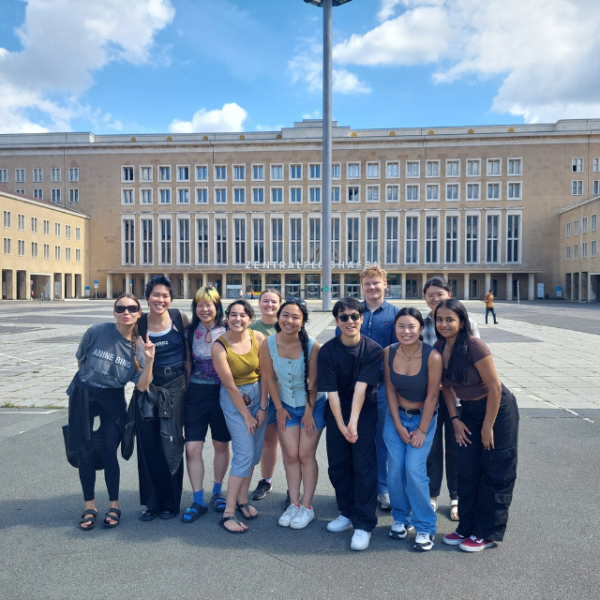
Tübingen, Germany
Representing the European Past in Cross-Cultural Communities
When:
01 August - 29 August 2025
Credits:
8 EC
Read more
History Summer Course
When:
26 July - 23 August 2025
School:
Summer and Winter University FUBiS
Institution:
Freie Universität Berlin
City:
Country:
Language:
English
Credits:
6 EC
Fee:
1300 EUR

The ‘thousand year Reich’ that Hitler promised when he became Chancellor of Germany in January 1933 lasted but 12 years. During this time, however, Hitler and his Nazi Party came to dominate European and even world affairs, terrorizing vast numbers of Germans, launching a devastating war, and orchestrating the murder of more than five million Jews. Yet Hitler and the Nazi Party gained the active support and involvement of most Germans. How was this possible?
This class focuses on Hitler’s Germany and it begins with the essential 19th century background. How did political anti-Semitism grow there? What shaped the social and political life? Central to this session will be a discussion of the broad political currents and the popular literature that Hitler and many of his supporters read and absorbed.
Crucial to understanding the lure of Hitler and the Nazi Party was Germany’s experience in the First World War, a conflict that decimated a generation and destroyed Europe as it was known. Germany became a democratic state, but was torn by political divisions and dissatisfaction. In this climate of uncertainty and despair, Hitler and the Nazi Party grew from a small group on the radical fringe in Munich to a national force. How did this happen? Those traits of Hitler crucial to his success, particularly his charisma, will be defined and analyzed within the broader political context of Weimar political life.
In late January 1933 Hitler gained the long desired but elusive goal: he became chancellor of Germany, the leader of a coalition government. Much attention will be paid to how Hitler, his cabinet, and supporters were able to consolidate the control over the state and society within a matter of months. This came at the cost of political liberties, through the growing use of terror, oppression, and intimidation. Yet, Hitler gained supporters as he seemingly offered economic stability and a new unity to the German people. How the regime solidified its control over society and political life will be examined and discussed at length in this session.
A key element of Hitler’s rule was the concentration camp system, what came to be a vast chain of prisons and centers of oppression and death. How this developed will be examined and analyzed.
Hitler’s ambitions, the conquest of ‘living space’ in Eastern Europe and the annihilation of the Jews, motivated his foreign ambitions and led directly to World War II, the most destructive conflict in human history. A central element of the war was the Holocaust, the all-out program to destroy the Jews of Europe. The session will examine closely these developments, the nature of the war, how the Holocaust was implemented, and the role that terror played in sustaining Nazi rule. We will also discuss the measures taken against the handicapped, homosexuals, Sinti and Roma.
In Germany and later in occupied Europe opposition and resistance emerged and challenged Nazi rule. Opponents were motivated by a variety of reasons, some personal, some political, and these too will be discussed.
Lastly, the class will examine the end of the war, the so-called ‘zero hour’ in Germany, the destruction and collapse of Germany, and then how this nation has dealt with the legacy of Hitler and Nazi rule.
We will be visiting local museums, historical sites and locations that reveal the operations of Nazi rule. These visits are a key element of the class and the experience of studying in Berlin.
Dr. Marcus Funck
We welcome students from all disciplines who are interested in gaining an insight into the operations and dynamics of Nazi rule in Germany, its attempt to annihilate the Jews and to dominate the continent.
Fee
1300 EUR, course fee
Fee
300 EUR, program fee
When:
26 July - 23 August 2025
School:
Summer and Winter University FUBiS
Institution:
Freie Universität Berlin
Language:
English
Credits:
6 EC

Tübingen, Germany
When:
01 August - 29 August 2025
Credits:
8 EC
Read more

Berlin, Germany
When:
26 July - 23 August 2025
Credits:
6 EC
Read more

London, United Kingdom
When:
21 July - 08 August 2025
Credits:
7.5 EC
Read more